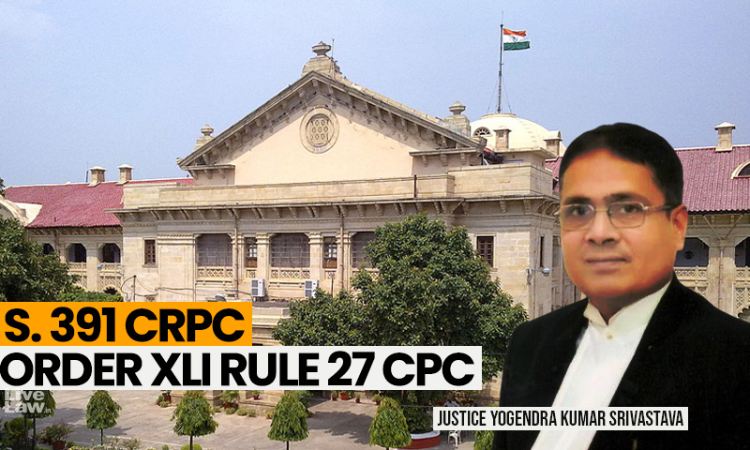Power To Take Additional Evidence- "CrPC S. 391 Akin To Order XLI Rule 27 CPC; Appellate Court Should Use Power Sparingly": Allahabad HC
Sparsh Upadhyay
29 Aug 2021 8:35 PM IST

Next Story
29 Aug 2021 8:35 PM IST
Underscoring that powers under Section of 391 of the Code of Criminal the procedure is akin to those of Order XLI Rule 27 of the Code of Civil Procedure, the Allahabad High Court recently held that such powers to take additional evidence by the appellate court must be exercised sparingly.The Bench of Justice Dr. Yogendra Kumar Srivastava emphasized that the power so exercised is of...
